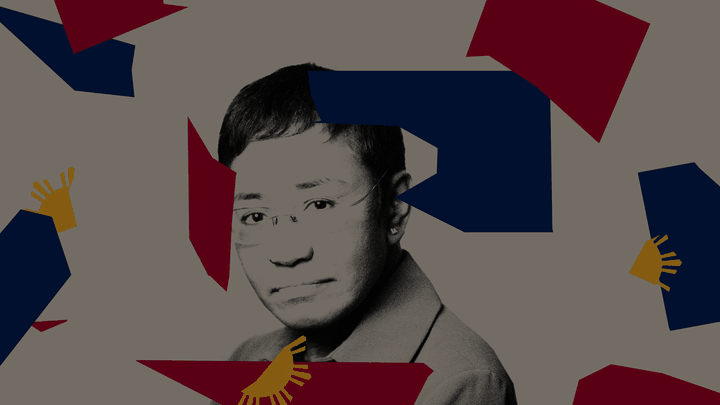Why it matters
Maria Ressa’s case is important not only because a government used a crime statute to intimidate and lock up a journalist for what should have been treated as a civil dispute, but because of what it says about the way governments are increasingly using the “rule of law” to silence the legitimate work of journalists.
“As a journalist, I know firsthand how the law is being weaponised against perceived critics,” Ressa told CNN.
“I’m not a critic,” she continued. “I’m a journalist and I’m doing my job, holding the government to account.”
Ressa is one of the world’s most decorated reporters. A former CNN correspondent, she set up the news website Rappler.com early in 2012 with a group of colleagues. Since then, it has won numerous awards and become one of the most respected news organisations in the Philippines, fearlessly covering the Duterte government and the consequences of its war on drugs that has claimed thousands of lives.
Last year, TIME Magazine named Ressa a “Person of the Year” – among several journalists including the recently murdered Jamal Khashoggi – for her courageous defence of press freedom.
Rappler published the disputed story in May 2012, four months before the government passed the cyber-libel law. (Under the Philippines’ constitution, no law can be retroactive.) The law also requires complaints to be filed within a year of publication.
The NBI said Rappler had updated the story in 2014 (it corrected a spelling error), and argued that because the story was still online, the website was guilty of “continuous publication”.
The cyber-libel charge is the latest in a long string of legal attacks Rappler is fighting off. Ressa told CNN she is involved in no less than seven separate cases, including charges of violating laws that prohibit foreign ownership of media companies and tax evasion.
She vehemently denies all the allegations, and to date there has been no evidence to support them. Instead, the legal assault has widely been condemned as a blatant attack on press freedom.
After the Securities and Exchange Commission (SEC) – responsible for registering companies in the Philippines – warned it was revoking Rappler’s license to operate because of breaches of the ownership laws, Philippines Senator Risa Hontiveros tweeted this was “a move straight out of the dictator’s playbook. I urge the public and all media practitioners to defend press freedom and the right to speak truth to power.”
The Foreign Correspondents Association of the Philippines expressed “deep concern” over the SEC decision, saying it was “tantamount to killing the online news site”. And, the Economic Journalists Association of the Philippines said the decision, “will be remembered in Philippine press history infamy. It is the day that a government built on democratic principles struck a blow on one of the pillars of Asia’s most vibrant democracy.”
The SEC has allowed Rappler to continue operating while the case is pending, but the threat of closure remains.
In its defence, the country’s justice department denied it was an attack on press freedom, arguing free speech did not give licence to engage in libel. That is true of course, but the way the authorities in the Philippines have been twisting the law to suit a blatantly political purpose should be troubling to all of us.
How governments silence journalists
The Duterte administration isn’t the first to do this. It happened to my two colleagues and I in Egypt, where we were charged and convicted for terrorism offences after we spoke to the Muslim Brotherhood – the group who had six months earlier been ousted from power as the first legitimately elected government in Egypt’s history.
As responsible journalists, we had a duty to speak to all parties involved in the political crisis, and for doing our jobs, we were sentenced to seven years for “promoting terrorist ideology”.
Turkey is the world’s most prolific jailer of journalists, with 68 in prison. Yet all are there on terrorism charges.
And the problem is not limited to authoritarian regimes. As much as former US President Barack Obama spoke out in our defence while we were imprisoned in Cairo, his administration used the Espionage Act (passed in 1917 to deal with foreign spies) more than all his predecessors combined.
The act was applied against government workers leaking information to the press. If the leaks exposed genuinely sensitive information, this would be understandable, but in almost every case it was to go after journalists or their sources revealing politically embarrassing stories.
In Australia, a slew of laws have come in that, in their own way, choke off journalists’ ability to hold the government, courts and individuals to account. Whether it is the data retention law that makes it almost impossible to protect sources, or the chronic overuse of suppression orders that restrict journalists’ capacity to report on court cases, or defamation laws weighted heavily in against the media, all make the our societies more opaque without providing protection for legitimate journalistic inquiry.
As Maria Ressa said after she was released on bail, “Press freedom is not just about journalists. This is certainly not just about me or Rappler. Press freedom is the foundation of every Filipino’s right to the truth. We will keep fighting. We will hold the line. This has become more important than ever.”
Photo credit: New York Times


